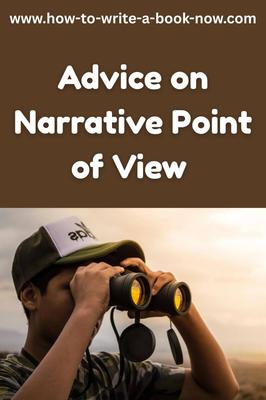Flashbacks and recollections
by Ralph
(Boulder, CO)
Question: My novel is the telling of a classic medieval villain's life from his own point of view. The history and setting are real, and the villain is taken from subsequent chansons des geste. As the protagonist his goal is to justify the outrage he has just committed, and he believes that his life will speak for itself. He must justify himself, for he is on his way to trial and eventual execution. The theme is what happens to a good man who is pushed beyond his limits.
The first two acts are his recollections, and thus flashbacks of a sort. A framing narrator is introduced in the prologue and shows up occasionally to assist in maintaining perspective. The third act is his trial, told in first person by the framing narrator.
He is an "unreliable narrator" of sorts, as the reader comes to realize that what he has done is not justified by what has been done to him. He, on the other hand, dies without repenting.
1. Is it enough for the reader of the first act to know simply that the protagonist has Done Something Bad, and leave the reveal of the act itself as the transition to the second act?
2. Since the Bad Deed hasn't occurred to any of the characters in the first two acts (since it is all flashback), how do I make the reader care about them without overtly revealing what will be revealed?
3. Overall, what do you think about the goal and structure? I worry about keeping people hooked through the first act, and making the middle meaningful for what is to come.
Many thanks!
Response: Do bear in mind that I can't tell you how to write your story. Also, it is very difficult to respond to questions like yours without having read the actual manuscript (which is not a service I provide). All I can do is offer some thoughts based on what you have told me, which you can take or leave as you see fit.
First, your description seems to be missing an act. That is, it sounds like your story has four acts.
Act 1: How your main character starts out as a good man.
Act 2: How he is put into an increasingly difficult situation.
Act 3: How, in a crisis, he solves his problem by making the wrong choice - one that is immoral.
Act 4: How he is punished for his choice (the trial and execution).
This act structure is in chronological order, of course. You don't have to tell the story in that order. You are free, as you suggest, to
The thing I'm not sure from your description is the point where you tell the events of act 3, the crisis. During the trial?
Be that as it may, here are some thoughts in regard to your questions...
1. Your challenge at the start of the book is to hook the reader. Mystery works well as a device. It's one of the reasons for telling a story out of order. The reader is presented with a situation without knowing the context, so he keeps reading to discover what led up to this situation.
You have to decide whether the mystery will concern why this man is being put on trial, why he is facing execution, or why he did the evil things he did. Either choice can work, depending on how you tell it.
2. You might consider switching between the flashback and the present time at various points, so that the reader first sees the good man in the flashback, then the man in prison awaiting trial, etc. That might help further the mystery of how he ends up in this predicament.
Similarly, perhaps we see likeable characters in the flashback, then in the present have the reader learn in the present that they endured needless suffering, so that the reader will wonder what happened to cause such misfortune.
3. I'm not sure if the story goal really is for the MC to justify his actions (though he might have an internal conflict with his conscience). I imagine in the crisis of act 3 he is struggling with a rather different problem, and solving that problem is the real story goal. It's just that he makes the wrong choice in his effort to solve it (making this story a tragedy). His inability to appreciate his mistake creates dramatic irony, since the reader will appreciate it.
I would suggest (if you haven't done so already) that you outline the story in chronological order and make sure it hangs together in a way that's dramatically compelling if told that way. Then play with the order of the story telling (the time shifts) to add an additional layer of mystery to keep the reader hooked.
Hope that helps a little.
- Home
- Writing Questions
- Flashbacks and recollections















